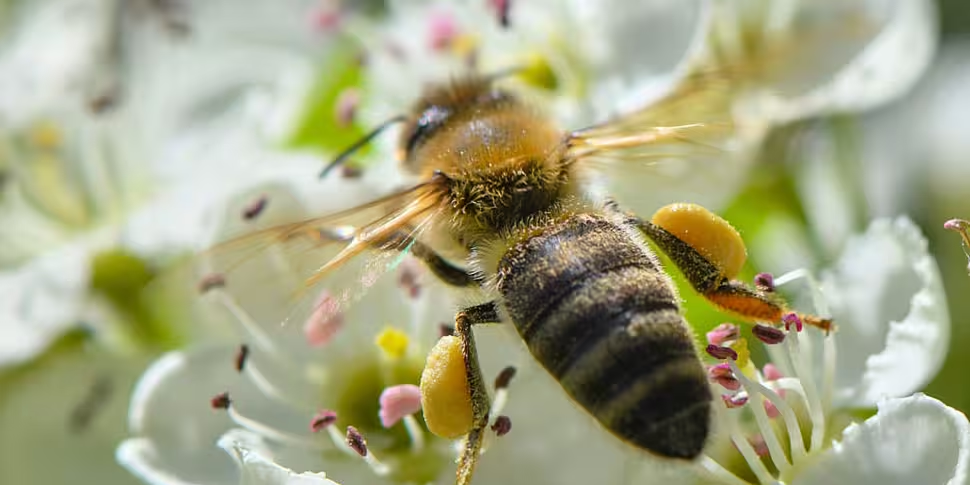The President Michael D Higgins has warned the insect world is "in acute danger" due to humanity's actions.
Monday marked World Bee Day 2019.
Bees are among the only insects in the world that produce food people can eat, and they pollinate as many as 170,000 species of plants.
To make 1kg of honey, a bee must visit four million flowers and fly four times the distance around the world.
According to FAO, 75% of the world's food crops depend at least in part on pollination by insects and other animals - the reason why bees are considered the invisible helpers of farmers across the globe.
Agricultural products that require pollination - like coffee, chocolate, almonds and cocoa - are also an important source of jobs and income.
Monday is #WorldBeeDay! 🐝
A world without pollinators would be a world without food diversity. Key facts from @undp: https://t.co/HEwabh1VWz pic.twitter.com/4dhYFl85jg— United Nations (@UN) May 20, 2019
The United Nations has said: "Bees and other pollinator populations have significantly decreased, and some bees and butterflies are under threat.
"Some of the reasons are pests, use of pesticides and other non-sustainable agricultural practices, pollution and loss of habitat.
"Much of this can be traced to human activity."
Recently, the European Union banned the use of bee-harming pesticides as a measure to protect bees and other insects vital to crop production.
In a statement, President Higgins said: "Humanity depends on pollinators. They are vital to the global food chain.
"Yet, we must acknowledge that our actions - including farming practices, urbanisation, land management, environmental pollution and the climate crisis - have placed our insect world in acute danger.
The Life of an Irish Beekeeper
"So today, let us use World Bee Day, and National Biodiversity Week, to increase and spread the knowledge and the awareness of the importance of the living world, and commit to specific action to ensure the survival of all of Ireland's native bee and pollinator species.
"As President of Ireland, may I thank all those who are already taking action, and who continue to work to conserve our environment in all its vital diversity, and may I express the hope that World Bee Day and National Biodiversity Week will inspire countless others to join them and discover how they, too, can be part of the urgent change that we must achieve for our generation and generations to come."









